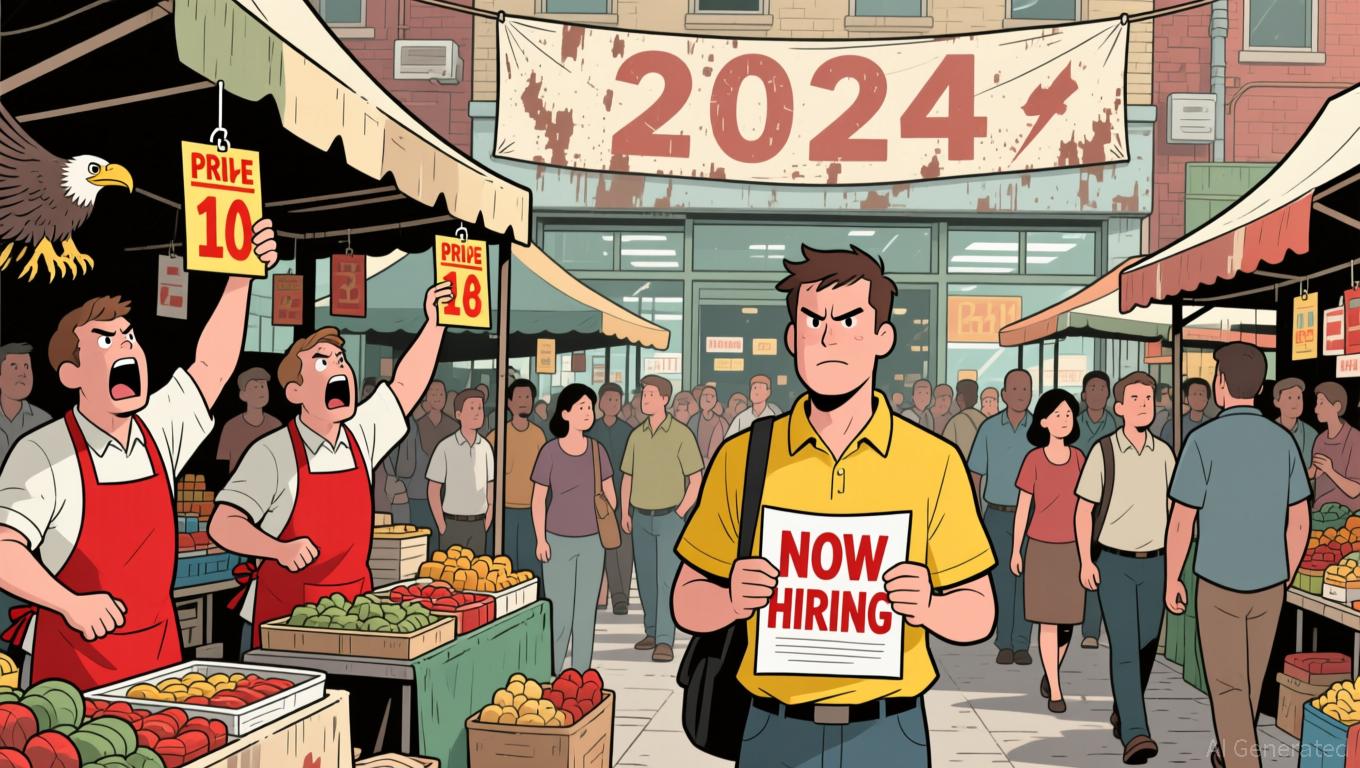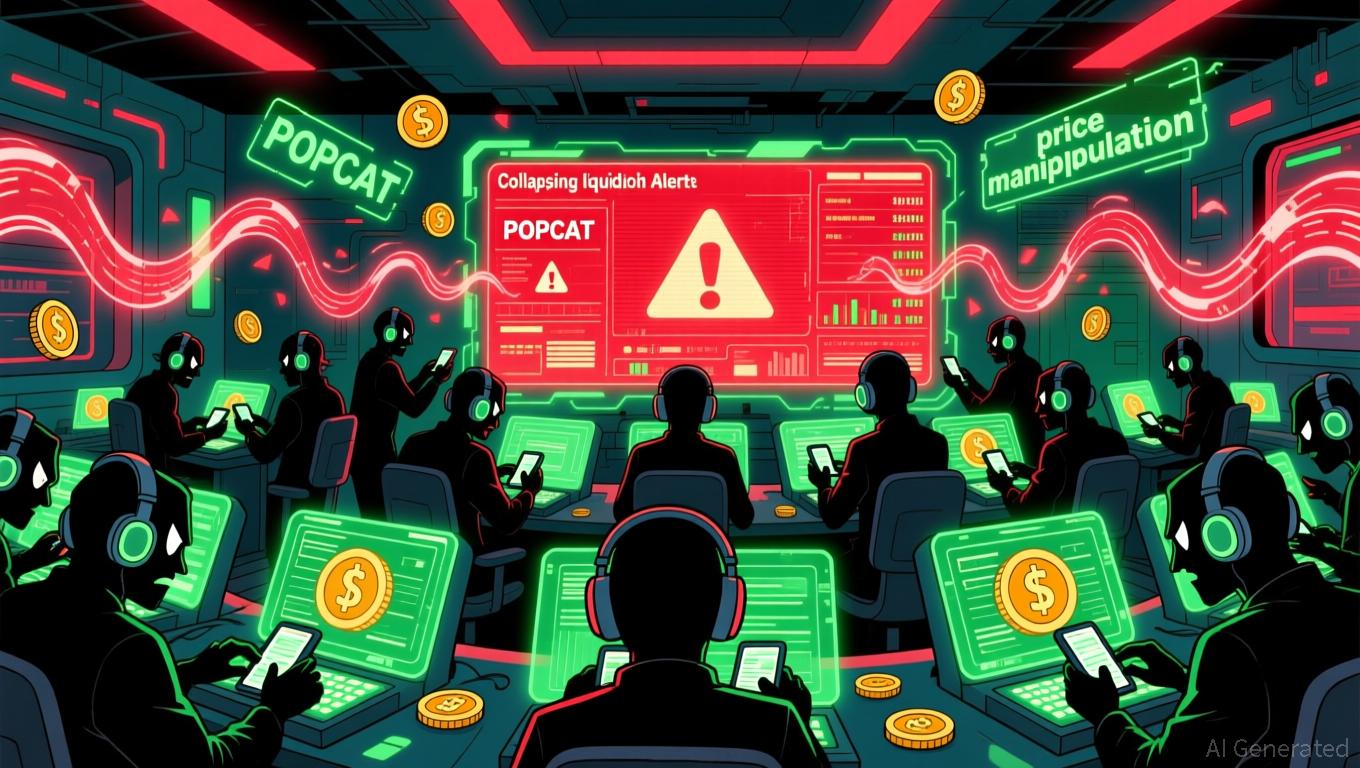Fed Split: Should They Prioritize Fighting Inflation or Supporting Employment?
- Fed policymakers remain divided over prioritizing inflation control or labor-market support, with hawks like Bostic urging rate stability until inflation nears 2%. - Dovish officials argue slowing job growth (29,000 monthly payrolls in late 2024) demands rate cuts to sustain economic momentum despite inflation risks. - Tariff adjustments and delayed economic data complicate decisions, with Treasury's import relief measures facing criticism for potential inflationary rebound. - Looming student loan tax ch
The Federal Reserve has adopted an increasingly cautious stance regarding interest rate reductions, as internal disagreements among policymakers deepen. Officials are divided on whether inflation or a weakening job market represents the more significant risk. Raphael Bostic, President of the Atlanta Fed and known for his hawkish views, reaffirmed his belief that rates should not be lowered until there is "definitive proof" that inflation is moving toward the Fed's 2% goal, according to a report by

Newly announced tariffs have added to the complexity. Treasury Secretary Scott Bessent indicated there would be "significant" tariff reductions on items like coffee, bananas, and other imports to help lower consumer costs, as
Adding to the uncertainty is the prospect of a "tax bomb" for student loan borrowers. Advocacy organizations and Democratic lawmakers have cautioned that debt canceled under income-driven repayment plans will become taxable in 2026, potentially leaving millions with tax bills ranging from $5,800 to $10,000, according to CNBC. Although this issue is separate from monetary policy, it highlights the wider affordability challenges influencing economic discussions.
There is no consensus in the markets about the Fed's upcoming actions. While many investors still anticipate a rate cut in December, the odds have lessened as hawkish voices advocate for maintaining current rates, as Investing.com reported. Should a December cut occur, it would likely flatten the yield curve and weaken the dollar, which could benefit emerging markets and commodities such as gold and copper, according to Investing.com. Conversely, postponing a rate reduction could lead to a sharp increase in Treasury yields and a downturn in stock prices.
Disclaimer: The content of this article solely reflects the author's opinion and does not represent the platform in any capacity. This article is not intended to serve as a reference for making investment decisions.
You may also like
BNB News Today: BNB Surges Back to $1,000—Is This a Genuine Breakout or Just a Temporary Rally?
- Binance Coin (BNB) rebounds above $1,000 after hitting $900 lows, sparking debate over sustained recovery or bearish reversal. - BNB Chain upgrades security by migrating multi-signature wallets to Safe Global, aiming to boost user confidence and EVM compatibility. - Nano Labs repays bonds early to mitigate risk, reflecting institutional focus on liquidity amid crypto market volatility. - AI models predict $1,600 BNB by 2026 if on-chain activity and institutional demand persist, but key resistance at $1,1

Bipartisan Agreement Concludes 43-Day Government Shutdown, Delaying Healthcare Dispute
- U.S. House to vote on bipartisan deal ending 43-day government shutdown, with short-term funding extending through January 30. - Agreement includes three-year appropriations bills but fails to extend Affordable Care Act subsidies, sparking Democratic criticism over unmet healthcare demands. - Economic fallout includes 1.5% GDP growth drop, unpaid federal workers, and disrupted SNAP programs affecting 42 million Americans. - Market rebounded with Bitcoin surging past $106,000, but partisan tensions persis
Ethereum Updates Today: Does MEV Manipulation Constitute Cheating or Legitimate Strategy? Crypto Lawsuit Moves Toward Retrial
- Prosecutors seek retrial for MIT-educated Peraire-Bueno brothers accused of $25M Ethereum MEV exploit, with new trial set for late 2026. - First criminal MEV case highlights legal challenges in defining fraud within blockchain's decentralized systems, after deadlocked jury caused mistrial. - Prosecutors allege transaction reordering siphoned funds, while defense claims bots operated within Ethereum's "fair competition" rules. - Case could shape crypto regulation, with DOJ emphasizing MEV risks to blockch

Hyperliquid News Today: DeFi’s Weakness Exposed as Hyperliquid Suffers $4.9M Loss from POPCAT Exploit
- Hyperliquid paused deposits/withdrawals after a $4.9M loss from POPCAT price manipulation via 19 wallets and $20M buy orders. - A single trader exploited liquidity gaps, triggering cascading liquidations and exposing systemic risks in decentralized derivatives platforms. - The incident mirrors March's $12M JELLYJELLY manipulation, highlighting vulnerabilities despite community-governed risk controls. - POPCAT's price volatility spiked trading volume 10X to $230M, while HYPE token dropped 2% amid mixed ma
